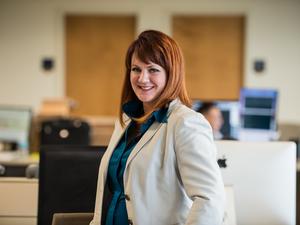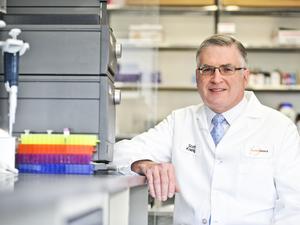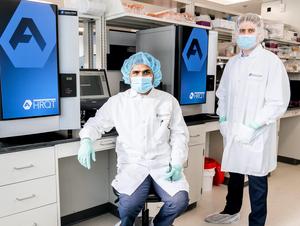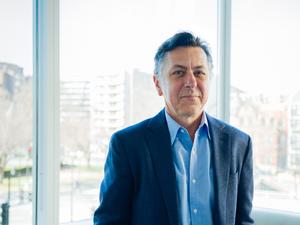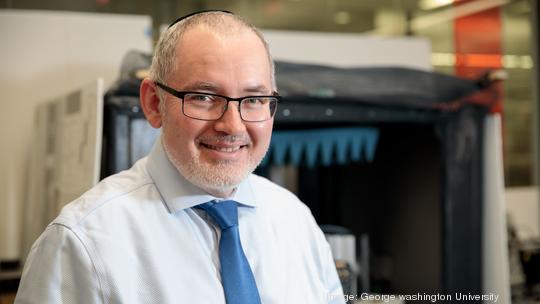
A D.C. university and Maryland biotech are teaming up to advance medical devices for cancer therapies — and Covid-19 — to the tune of $3.2 million.
George Washington University and Takoma Park life sciences and biomedical device company US Medical Innovations LLC have entered a corporate research agreement to develop what are called adaptive cold plasma devices. The partners are now studying that technology in gastrointestinal cancer “where the surgery is done and tumor is removed, and then residual cells or surgical margins are treated with the plasma to remove small lesions,” said Michael Keidar, a professor of engineering at GWU and mechanical engineer by training.
The university licenses its original patent to the company to develop the product and conduct early-stage clinical trials. USMI, part of Delaware holding company US Patent Innovations LLC, is funding the project with $3.2 million for four years. During that time, the parties will get the technology through animal studies before taking it to the clinic.
How does it work? Simply put, plasma is a type of ionized gas that can interact with cancer cells. And making it cold rather than its usual hot temperature makes it safe for humans.
“The idea would be that this device provides a stream, like a jet, that contains this reactive species that can be tailored specifically for particular cancer, and can be treated within several minutes of time” immediately after a surgery in which a tumor is removed, Keidar said in an interview.
“Having such a partnership really shortened the time for our technology to get to the patient,” he added.
But the work doesn’t stop at cancer. Earlier this year Keidar and his team received a $200,000 grant from the National Science Foundation to study plasma’s ability to disinfect surfaces from coronavirus. That could mean decontaminating personal protective gear and other equipment in a hospital environment because “plasma’s reactivity can also be used to kill viruses,” he said.
The GWU-USMI deal extends an existing collaboration between Keidar, who has studied cold plasma for a decade, and Jerome Canady, a surgical oncologist and CEO of Plasma Medicine Life Sciences, another division of USPI. It also builds on a 2017 agreement between GWU, USMI and the Jerome Canady Research Institute for Advanced Biological and Technological Sciences, of which Candy is also chief science officer.
“This exciting new development enhances our previous collaborative agreements with Dr. Michael Keidar and his fellow associates at the Micropropulsion and Nanotechnology Laboratories at GW,” Canady, also a GWU engineering profesor, said in a statement.
Both the cancer and Covid programs will take some time to advance — and will require more money. So going forward, GWU would consider seeking involvement and funding support from other small businesses and D.C. government, Keidar said.
The partners also hope their arrangement becomes a model that other academic institutions and private companies duplicate, according to Tom Russo, GWU’s assistant vice president of industry and corporate research.
“Researchers love to do the research, but a lot of time, that’s where their skill set ends. They don’t have the capacity, or sometimes the desire, to turn that research into a product. It’s not their expertise, it’s not using their resources most effectively," Russo said in a statement. “That’s why it’s important to bring someone else in who knows how to do that, but doesn’t have the basic research skills. It’s a good marriage.”
